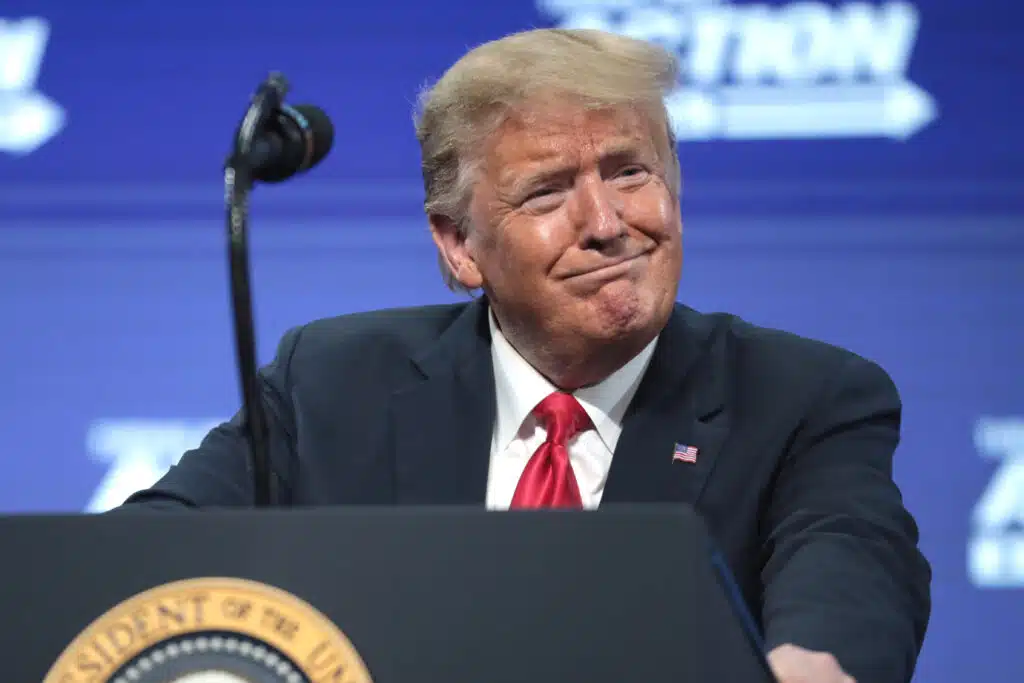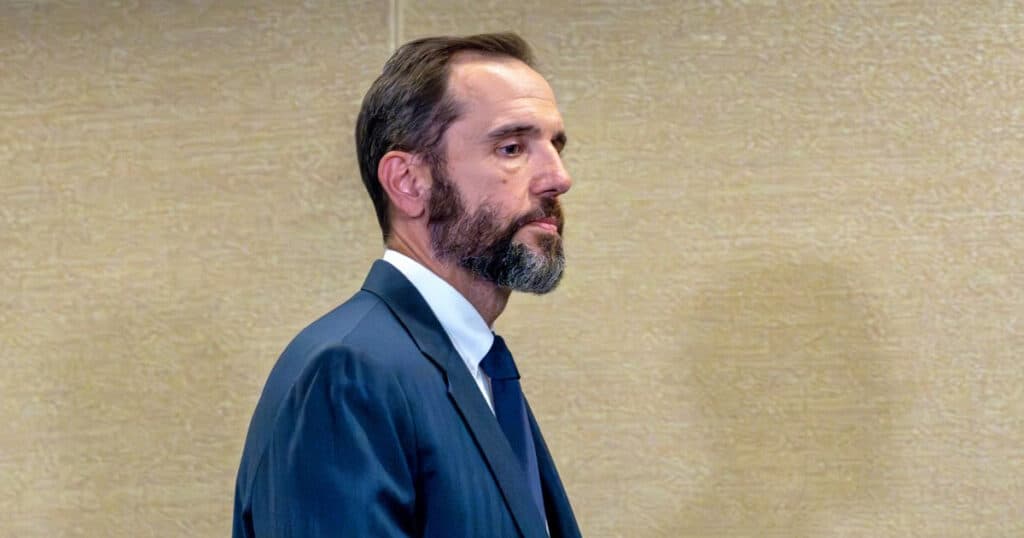
Trump’s Big Stick Strategy Will Make America Respected Again
Despite his best efforts at saber-rattling, Colombia’s socialist president Gustavo Petro bent the knee and agreed to take in American deportation flights carrying Colombian nationals, after only a day of receiving tariff threats from President Donald Trump.
While America and Colombia have been long-time partners in coordinating anti-narcotics efforts, newly elected President Trump hit a sore spot this past Sunday after he commenced deportation flights to the South American country. While world leaders reasonably expected Trump to execute his immigration policy the moment he stepped back into the Oval Office, this knee-jerk resistance from Petro only exposes the corrupt and unbalanced relationship the United States has had with Colombia for the past four years under the Biden-Harris administration.
Under Biden, South and Central American countries had a free pass to send their citizens, freed criminals, and other migrants to America’s doorstep without repercussions. For the past four years, the Biden administration wrote a blank check to allow any and all migrants into our nation, without even a background check. This has led to a swelling of migrant gangs such as Venezuela’s Tren de Aragua, which has been busy at work committing violent crime – including murders and rapes – on American soil. Thanks to Biden’s “humanitarian policy,” countries like Venezuela have emptied their prisons and have encouraged migrants to pass through with the promise of attaining the “American dream” in the form of free cell phones, food, and even housing at the expense of the American taxpayer. There’s one issue: Trump is back.
With U.S. Immigration and Customs Enforcement (ICE) ramping up deportation efforts of violent illegal aliens, the countries which for so long have benefited from the Democrats’ open-border approach are now forced to address the migrant crisis and take back the citizens they’ve abandoned time and time again. Colombia’s Petro is one of the first to actively resist Trump’s efforts to repatriate Colombian citizens, announcing: “From today on, Colombia is open to the entire world, with open arms.” Petro also tweeted out: “The U.S. cannot treat Colombian migrants as criminals,” and “We are the opposite of the Nazis.”
Trump responded, declaring that an immediate 25% tariff on “all goods” coming into the States from Colombia will be enacted; in one week’s time, the tariff would be raised to 50%. Petro responded in the like, announcing his own 25% tax on American goods, if Trump keeps to his word: “Your blockade does not scare me, because Colombia, besides being the country of beauty, is the heart of the world.”
The Inconvenient Truth: Tariffs Are Effective
Despite Petro’s poetic declarations, it appears he is all bark and no bite; within 24 hours of sparring with President Trump, Petro bent the knee and agreed to take in America’s deportation flights, ensuring that Colombia will, “facilitate the dignified return of the compatriots who were to arrive in the country this morning from deportation flights … [th]is measure responds to the Government’s commitment to guarantee decent conditions.”
In fact, Trump’s tariff threat was so effective, Petro quickly agreed to all of Trump’s terms regarding facilitating deportation efforts; so much for being “open to the entire world.” Petro even offered his own presidential plane to pick up migrants in Honduras in a good faith effort not to disrespect American sovereignty again.
This nimble victory on migration policy isn’t just a nod to how effective Trump’s diplomatic strategy is on the world’s stage. It also highlights a fear establishment politicians and the legacy media have been dreading: Protectionism works.
While the talking heads of CNN, CNBC, NBC and others are quick to fear-monger and forecast the potential price hikes associated with hypothetical tariffs on foreign goods, they conveniently ignore one important aspect of announcing tariffs: leverage.
For the past four years, America has been the world’s laughing-stock. Under Biden, we have experienced war in Ukraine, renewed Chinese efforts to invade Taiwan, the funding of Islamic terrorism in the Middle East, a Taliban takeover of Afghanistan, and blatant spying on American soil. The world has taken American for granted, betting on a weak and ineffective commander in chief to do their bidding and continuously fund their morally questionable policies.
Protectionism Will Be a Diplomatic Strategy, Not an Economic One
With Trump back in the picture, the threat of tariffs shows that America means business after four long years of inept (and absent) leadership. While academics, “classical liberals,” and politicians decry Trump’s use of tariffs as “anti-democratic,” they fail to address tariffs in action. Trump needed only to voice the possibility of tariffs if Colombia did not take back its own citizens. Petro knows better than to spar head-to-head with Trump, as do most other world leaders; the threat of tariffs is sufficient to get countries to step in line. No actual tariffs need to be put in place if American foreign policy is respected. Colombia is the textbook case: Trump rescinded his order after Petro conceded.
In short, tariffs signal to allies and adversaries alike that we are serious about our policies and expect others to pay their fair share. Where have we heard this before?
China seems to already be following suit, having recently agreed to take back illegal immigrants in the wake of potential Trump tariffs.
Protectionism is back, but in a different way: It will be used to remind the world that it should respect America for the billions of taxpayer dollars the federal government disperses every year to subsidize foreign industries. Countries can no longer profit carte blanche off of an American welfare state. If they want fair and free trade relations with the United States, they must do their part to collaborate on important foreign policy matters like the repatriation of their own citizens. They should look to El Salvador’s President Nayib Bukele and his success for inspiration.
Play fairly, or pay the price, it’s as simple as that. It’s what’s equitable in the end, anyway.
This article was originally published by RealClearPolitics and made available via RealClearWire.



